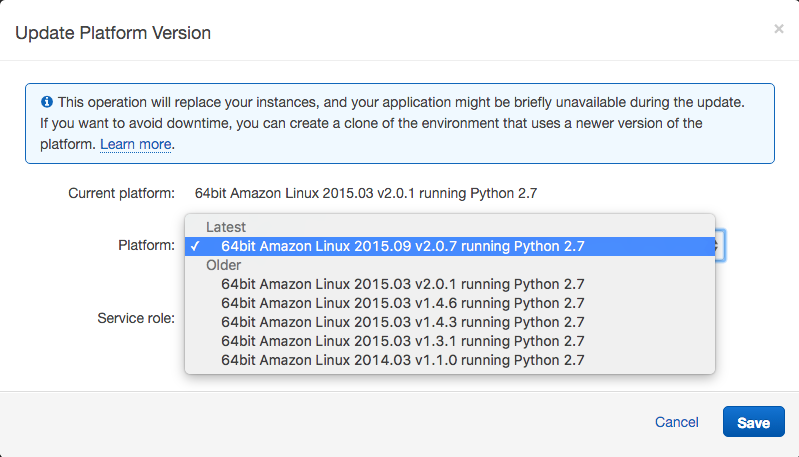ebenv: Elastic Beanstalk environment copy/dump tool
with tags aws elasticbeanstalk tools pip -At Takumi we use Elastic Beanstalk, which is a nice API/service from AWS which strikes a decent balance between a heroku-esque simplified service interface for developers, and the hands-on control required by those of the devops persuasion, such as myself.
One of the main benefits of using Elastic Beanstalk is how quick and easy it is to spin up new environments, and I make heavy use of that in my work. Basically what I find relatively often useful is the ability to copy an existing environment to test new code with the same configuration and resources, with a limited set of clients. Reasons to do that might be;
- Rolling out new features to a limited set of clients
- Making a new environment for a new developer who wants to test something with minimal risk of disruption
- Making new development environments with “production-esque” configuration as needed, and as the app needs evolve
- Keeping a separate environment which gets 5% of traffic via weighted DNS (canary-ing)
Basically it’s a logical conclusion that once you treat your infrastructure as programmable outputs which can be recreated and discarded at will, that your development patterns and needs evolve to take advantage of that.
One thing though that slightly bugged me when dealing with Elastic Beanstalk was the fact that there was no programmatic way of doing the following:
- Dump the environment variables for an app env to an envfile, usable by foreman, honcho or similar tools
- Same as 1 but an envdir, usable by envdir, chpst or similar tools
- Copy the environment variables (config) from one environment to another
- Load the environment variables in an envfile or an envdir into an existing EB environment
Recently I was doing a lot of work and needed to replace some of our existing environments because we’re migrating everything from language specific EB environments to the Docker environments, so I basically needed to create new EB environments for existing ones, but I couldn’t just clone them because the platform gets cloned as well and you can’t change the platform, only the version:
"changing" a platform version :-)

Doing this I sorely missed the ability to copy the environment configuration because I was essentially making clones of existing environments without being able to actually clone the environments.
Another semi-common issue I encountered was dumping values from an existing environment, in order to start a server locally or on another instance using the same configuration. Basically, over the last few months I’d been intermittently wishing for a tool to deal with EB environment configs more programmatically, partially because we have a decent amount of configuration values which don’t play nice with awsebcli, but also because of the other issues I described already.
I decided to finally do something about it and I wrote ebenv. You can install it via pip
(pip install ebenv) or find it on github.com/steinnes/ebenv.
Currently it can handle issues 1-3 here above, and I’m planning to add
counterpart commands to the env and envdir commands to easily sync
local changes (which might even be maintained in a gasp repository!)
with a remote Elastic Beanstalk environment.
If you also use Elastic Beanstalk, I hope ebenv can be of some use to you, I certainly longed for a tool of this nature for a while before finally writing it ;-)